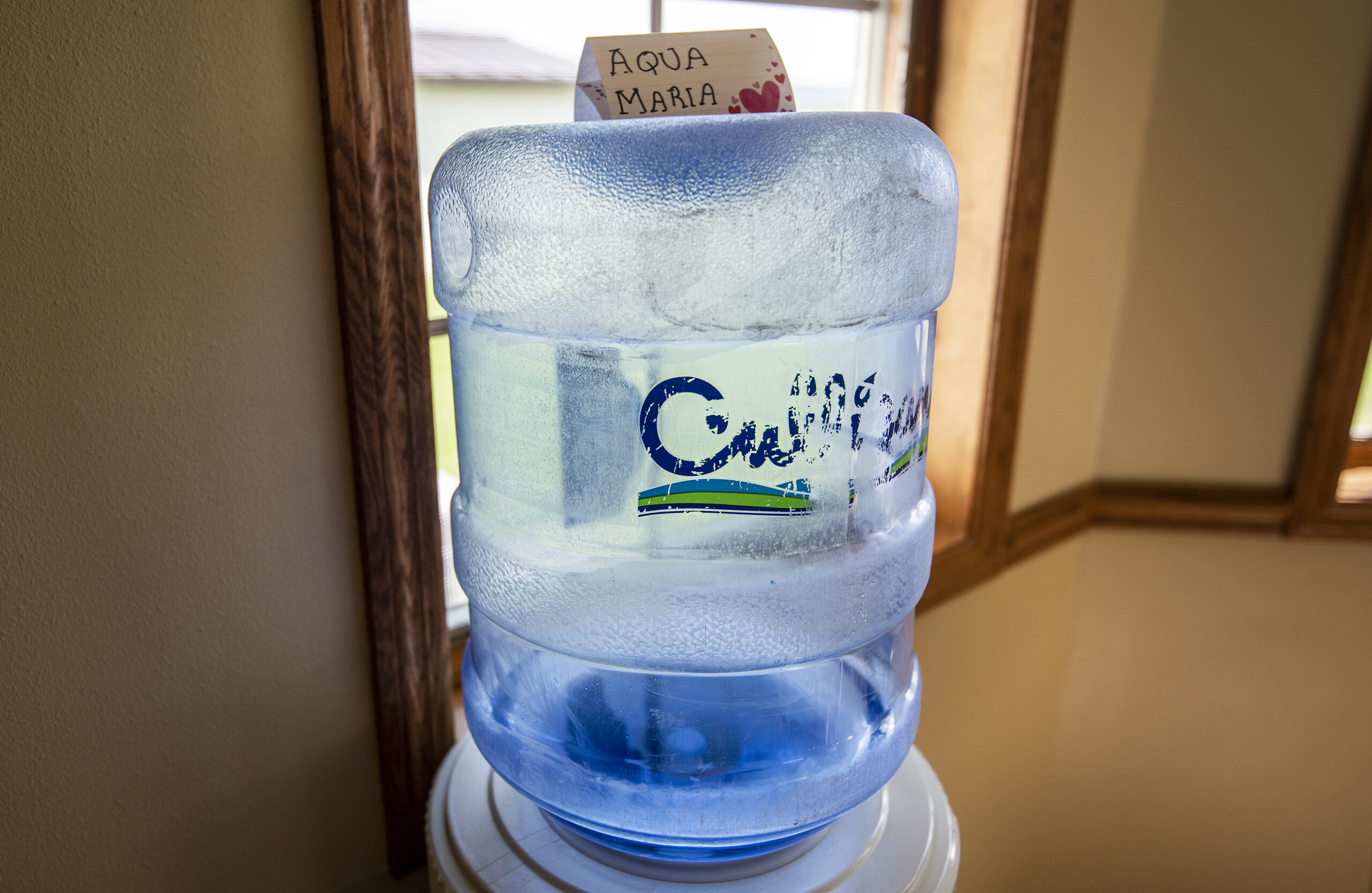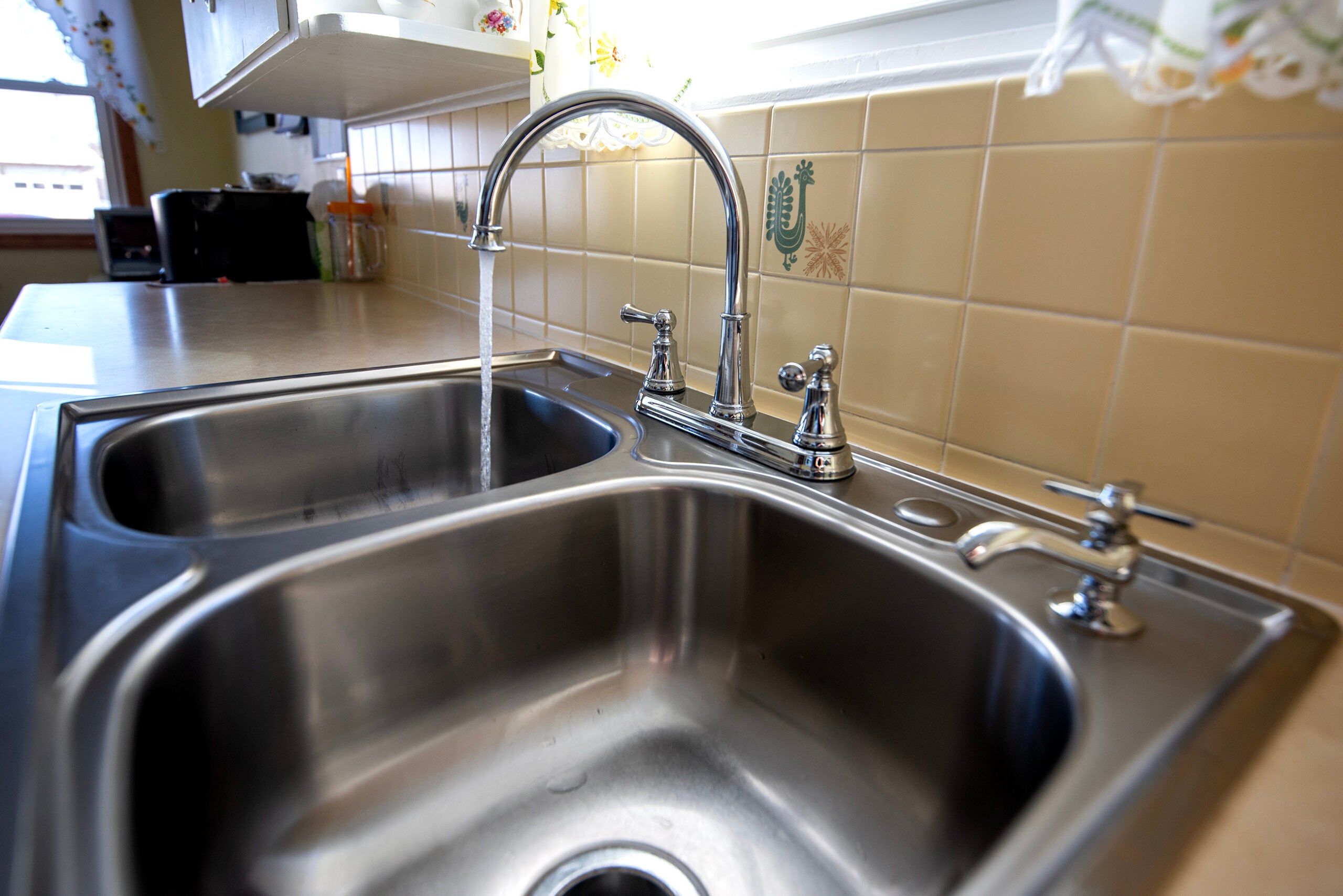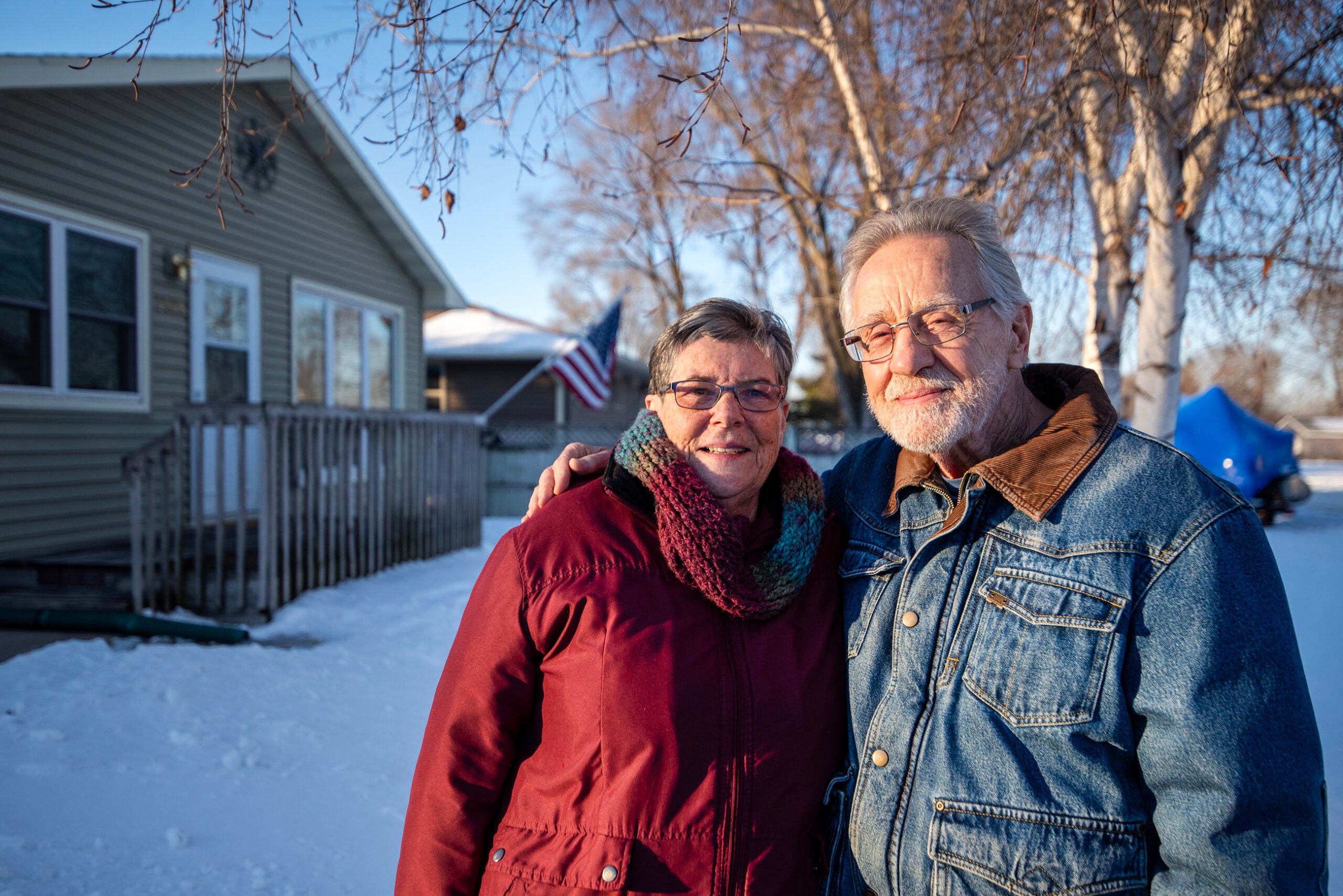The city of La Crosse and the Town of Campbell have started talks about bringing municipal drinking water to French Island residents who have private wells contaminated with PFAS.
While the heads of both communities say negotiations are off to a positive start, the leaders see the purpose of the meetings differently.
The two communities have been dealing with the harmful “forever chemicals” in private wells on French Island since 2020. The city previously found PFAS in two municipal wells on the island and officials believe the contamination is from firefighting foam used at the La Crosse Regional Airport, located on the island in the Mississippi River.
News with a little more humanity
WPR’s “Wisconsin Today” newsletter keeps you connected to the state you love without feeling overwhelmed. No paywall. No agenda. No corporate filter.
The airport, which belongs to the city, is a major part of the island. Aside from a handful of homes and businesses that have been annexed into the city, the Town of Campbell owns much of the island.
In 2021, the state Department of Natural Resources found more than 500 private wells on the island had some levels of PFAS contamination, leaving more than 1,100 residents reliant on bottled water provided by the state.
Josh Johnson, Campbell town chair, said he met with La Crosse Mayor Mitch Reynolds in recent weeks to begin renegotiating the existing water service agreement between the town and the city. He said the terms of the agreement were laid out in 2005 in order to provide some of the town’s businesses with city water, and include language about annexing properties into the city. He also said the plan largely favors La Crosse’s interests.
The two municipalities have clashed over annexation for decades, settling the most recent dispute in a 2004 boundary agreement.
Johnson said Campbell’s town board is working on plans to create their own municipal water system, which would either try to find an uncontaminated water source on the island or source water from another municipality like La Crosse.
But he said the board felt any talk of future annexation had to be removed from a service agreement between the two communities before they could consider buying their water from the city.
“This (existing) agreement in no way commits us to getting water from the city of La Crosse,” Johnson said. “But it does open the door for us to start looking for solutions.”
But Reynolds sees the talks in a more straightforward way.
“They have approached us about providing water for the entire island,” Reynolds said. “There’s a lot of different parts to that. Certainly parts of the conversation will be about annexation, parts of the conversation will be about fire services, parts of the conversation will invariably be about sewer services as well.”
He said discussions are at early stages, but the city is ready to start hashing out the details of how they would supply water to Campbell residents on the island.
Kyle Burton is field operations director for the DNR’s drinking and groundwater program, which has been assisting Campbell leaders in finding a solution to the PFAS contamination. He said it’s not uncommon to see talks about water services impacted by contentious relationships between municipalities.
“Those conversations, that plan forward happens first and foremost, because we can’t make assumptions on how we would get water from a neighboring community,” Burton said. “When we started talking with the Town of Campbell, that was the first thing we talked about was those intergovernmental agreements, if they were looking to partner with a neighboring municipality.”
Despite the differences in how the communities are approaching talks, Reynolds said he thinks negotiations have started off on a positive note
“We are really at the very beginning here, so I don’t know what to expect over the long haul. But the contentious relationship between the Town of Campbell and the city of La Crosse, that predates both myself and Josh,” Reynolds said. “My anticipation is that we’re going to be on a better footing because we’re not tied to that history maybe as much as other people are. And I think that that provides us an opportunity to make some real progress.”
Johnson said he agrees, calling the open communication between the two municipalities “refreshing.” But he said reaching a final agreement won’t be simple given his constituents’ historical distrust of the city and new anger over La Crosse’s role in the contamination of their wells.
Wisconsin Public Radio, © Copyright 2025, Board of Regents of the University of Wisconsin System and Wisconsin Educational Communications Board.






